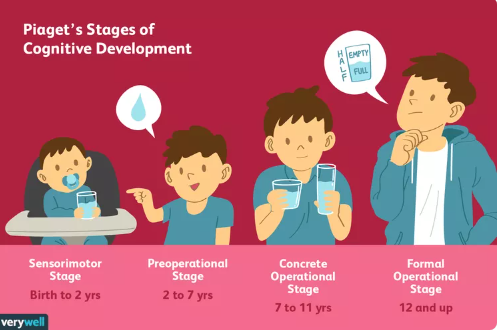The sensorimotor skills of a child are essential in their cognitive development, as it is the first stage of understanding the world around them, according to the famous Swiss developmental psychologist Mr. Jean Piaget. From reflexes to symbolic thoughts, the toddler’s little brain will actively process to figure out how the environment works and how they can interact with it. As parents, it is important to be aware of the development of our children and how their sensorimotor skills can take them to new heights of cognitive development.
Another important idea that the toddler will begin to realize during this phase is the case and effect theory. A simple application of this theory for the toddlers in this stage occurs when they use their hands to touch or move an object, and how that action will affect the environment. From editor’s own example is when my little eight-month baby was given an object to play by placing it further away from her. This will lead to her crawling towards it, and moving other objects along the way. She then takes it and throws it somewhere else. She quickly looked at my wife and me with a stunned look, realizing that the object was no longer in her hands.
We quickly realized her interaction and knew that her little brain inside of her was working overtime to figure out what to do next. The following 6 sub categories may explain some of her thoughts on dropping the object on the floor:
- Reflex acts: in the first few months, the little baby’s reflex action is observed when a parent touches the baby’s lips and he/she instinctively begins the sucking motion of her mouth.
- Primary circular reactions: in the first four months, little babies begin to wiggle their arms, legs, or continue sucking their thumb. This is a continuation of their reflex acts from before.
- Secondary circular reactions: these are actions that are carried out, continue to give pleasure to the little baby, such as shaking a rattle or in the editor’s experience, squeezing a soft blanket.
- Coordinating secondary schemes: in this sub category, as described from the editor’s example of the object, the little baby’s first eight months may include using their knowledge to attain a goal.
- Tertiary circular reactions: This sub stage involves more cognitive development and thinking as the little baby begins to solve simple problems, such as taking objects apart and tries to put them back together.
- Symbolic thought: This may be one of the last sub categories for the sensorimotor stage. It involves further enhancement of their cognitive development, by visualizing objects which they cannot see. It also includes toddlers remembering sounds or repeating simple words they remember from previous days before. Their vocabulary starts to build and imaginative play usually begins at this stage as well.
It is quite interesting for parents to see their little baby go through each step slowly. From personal experiences, parents can actually feel their little baby’s brain working hard to understand what they have done, or some new sounds they have not heard before. During the first few years, it is important to teach the toddlers as many things as you can. Toddlers and children learn so quickly, which may provide a solid foundation for the rest of their lives. They can also begin to draw their own conclusion s from their past experiences which will enable them to start to sharpen their analytical skills. As parents, we try to do what we can to prepare them for the future, no matter how hard it may be for them later on down the road.
Article references:
www.webmd.com/parenting/baby/what-is-sensorimotor-stage
Picture references:
www.pinterest.com/pin/777645060637803277/


